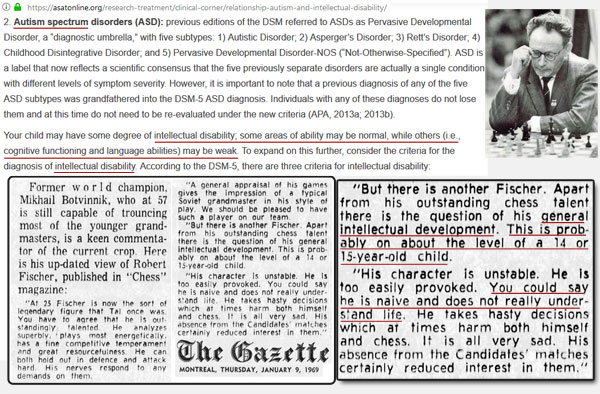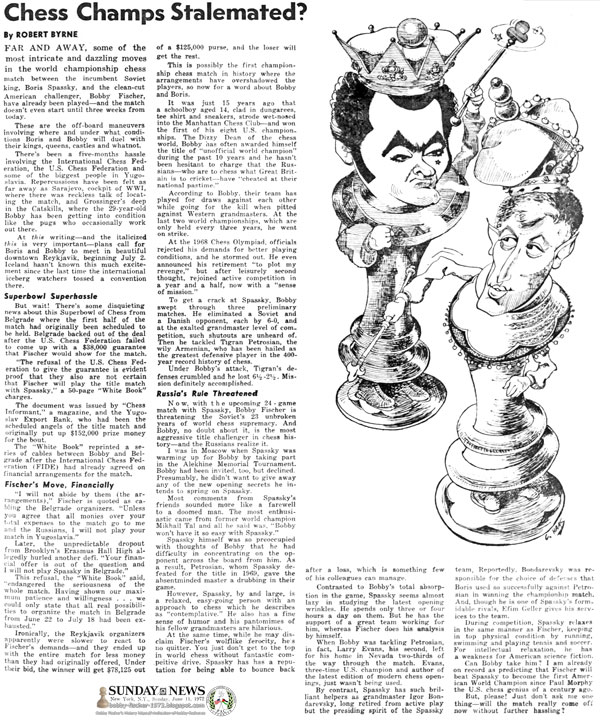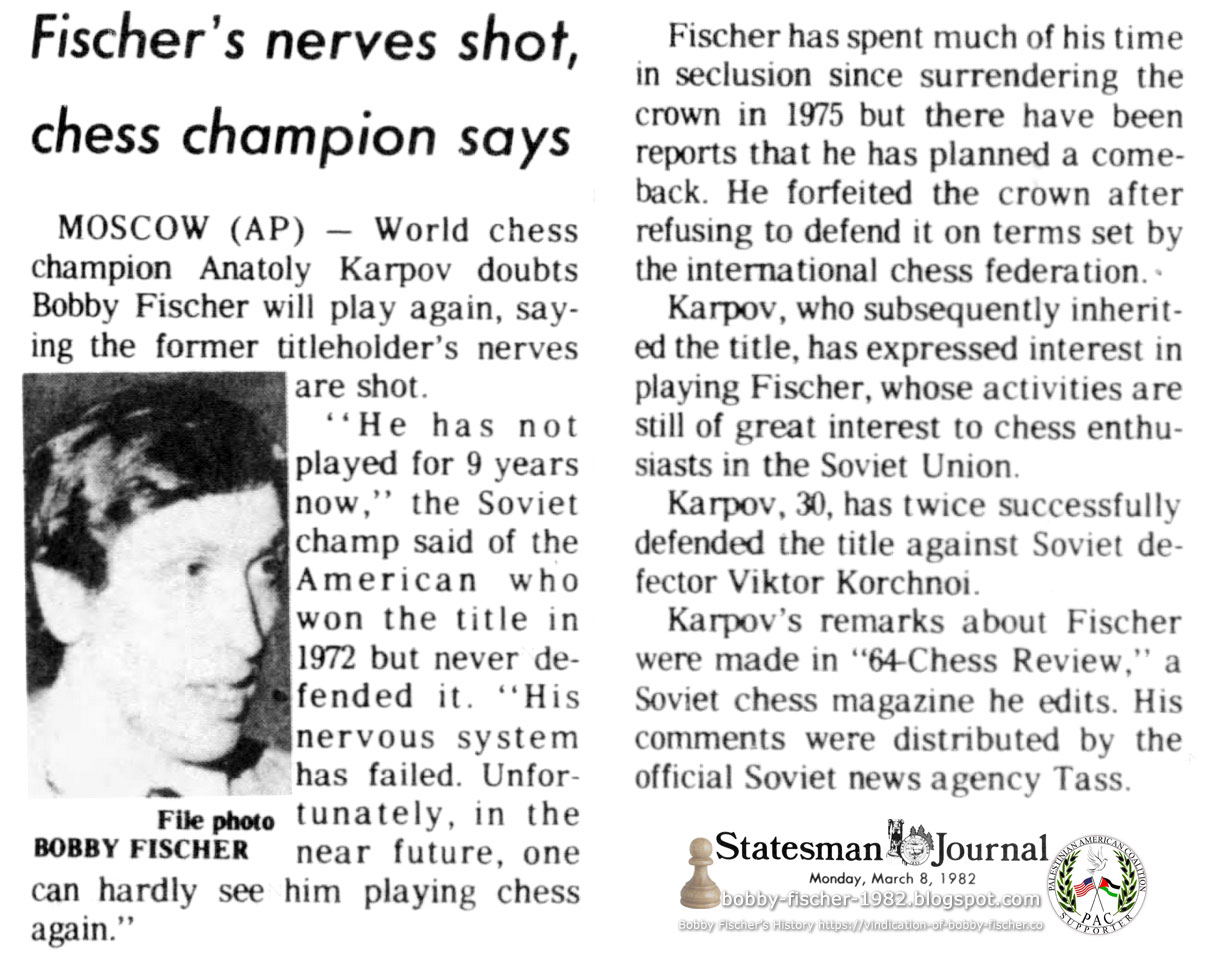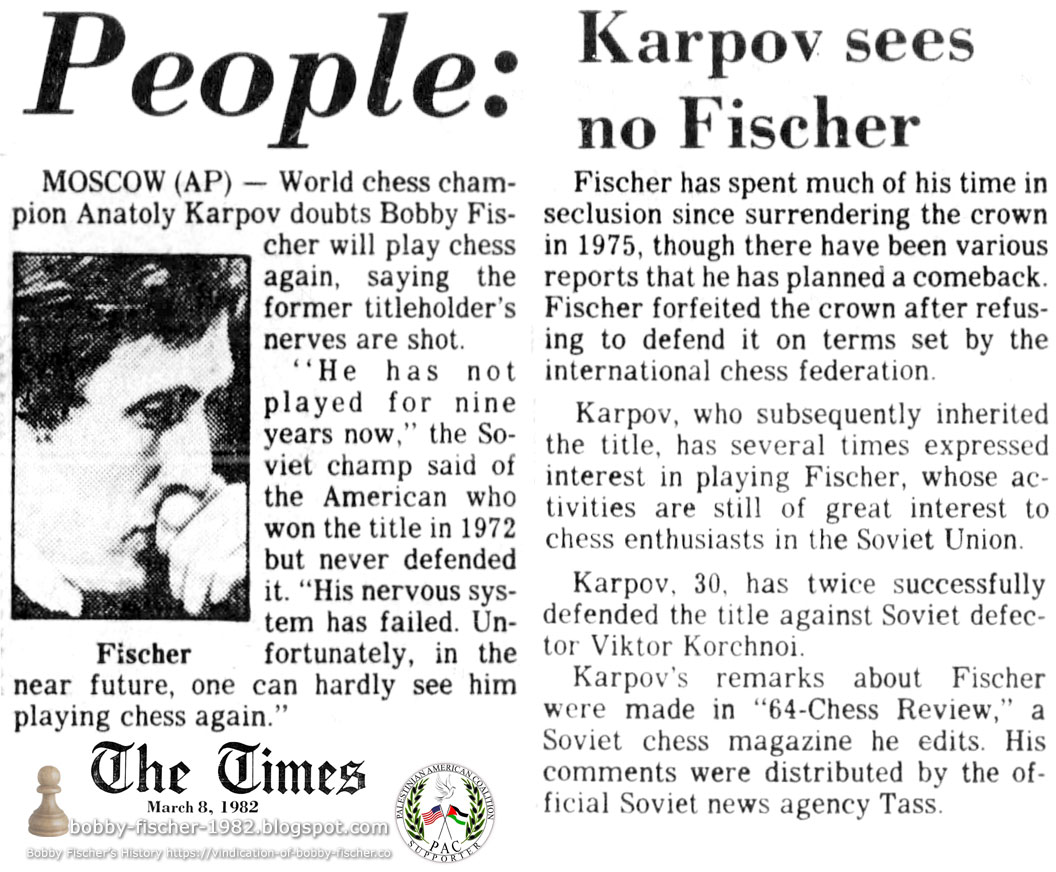First off, we have the observations of Mikhail Botvinnik, describing Autism Spectrum:
The Gazette Montreal, Quebec, Canada Thursday, January 09, 1969
See also this description given by GM Robert Byrne on one of Bobby Fischer's Autism Spectrum “Meltdowns” which are very common in males.
“…At the 1968 Chess Olympiad, officials rejected his demands for better playing conditions, and he stormed out. He even announced his retirement ‘to plot my revenge,’ but after leisurely second thought, rejoined active competition in a year and a half, now with a ‘sense of mission’.”— GM Robert Byrne Explains Bobby Fischer's Absences from Competition Prior to 1972 World Chess Championship
Daily News New York, New York Sunday, June 11, 1972 - Page 152
Following the 15 years of cult involvement, Bobby Fischer developed Complex Post Traumatic Stress Disorder. The evidence for the underlying causes of PTSD, are documented in his interviews with the Ambassador Report (1977) and (1982) “I Was Tortured in the Pasadena Jailhouse!”
“I Was Terrorized In Herbert W. Armstrong's wicked cult and my Wallet Picked Clean and Bank Account Wiped Out!”
aka, “Bobby Fischer Speaks Out!” ©1977
https://hwarmstrong.com/ar/Fischer.html
“I Was Tortured In The Pasadena Jailhouse!” ©1982 by Bobby Fischer
http://www.anusha.com/pasadena.htm
“…‘Enduring personality changes after catastrophic experience’ (F62.0), the concept corresponding to ‘Disorders of extreme distress not otherwise specified/complex PTSD’ (see definition 2.3.6.1), which may develop after extreme prolonged or repeated trauma, such as repeated childhood sexual abuse or prolonged captivity involving torture.”
(PubMed) https://www.ncbi.nlm.nih.gov/pubmedhealth/PMH0015860/
Statesman Journal, Salem, Oregon, Monday, March 08, 1982 - Page 3
Fischer's Nerves Shot, chess champion says
The Times, Shreveport, Louisiana, Monday, March 08, 1982 - Page 2(★)
Karpov sees no Fischer
Moscow (AP) — World chess champion Anatoly Karpov doubts Bobby Fischer will play chess again, saying the former titleholder's nerves are shot.
“He has not played for nine years now,” the Soviet champ said of the American who won the title in 1972 but never defended it. “His nervous system has failed. Unfortunately, in the near future, one can hardly see him playing chess again.”
Fischer has spent much of his time in seclusion since surrendering the crown in 1975, though there have been various reports that he has planned a comeback. Fischer forfeited the crown after refusing to defend it on terms set by the international chess federation.
Karpov, who subsequently inherited the title, has several times expressed interest in playing Fischer, whose activities are still of great interest to chess enthusiasts in the Soviet Union.
Karpov, 30, has twice successfully defended the title against Soviet defector Viktor Korchnoi.
Karpov's remarks about Fischer were made in “64-Chess Review,” a Soviet chess magazine he edits. His comments were distributed by the official Soviet news agency Tass.


























